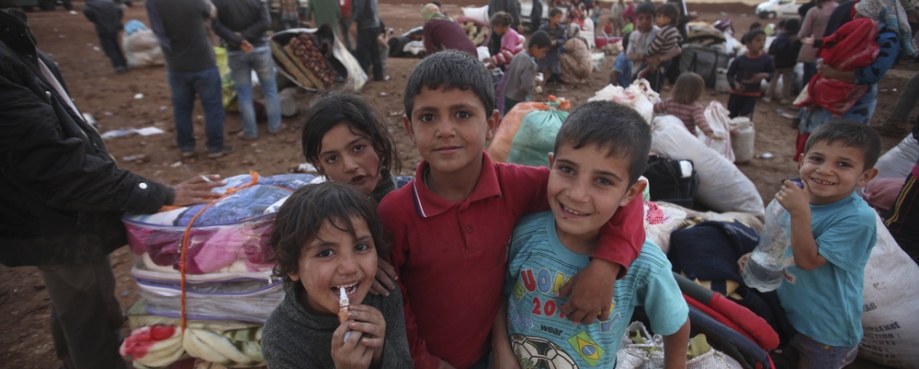
Syrian refugee children found making clothes for British shoppers: the words no UK-based retailer ever wants to hear.
This opinion piece by ETI's Martin Buttle first appeared in Retail Week on 25 October 2016
What do you do when you are told that unregistered refugees, including children, are working in your Turkish supply chain?
This is exactly what’s happened to four Ethical Trading Initiative (ETI) members - M&S, Asos, Next and Inditex - following a BBC1 Panorama investigation this week, Undercover: the refugees who make our clothes.
ETI and its member companies cooperated closely with Panorama over the making of the programme. We and they gave detailed feedback, with companies investigating the allegations and putting in place comprehensive remediation plans when abuse was found.
As members of ETI, this is what is expected, but ETI recognises that more work is needed across the sector.
Acknowledging the significance of the programme
It’s important to acknowledge the significance of this programme and the complete unacceptability of the worker exploitation and child labour that Panorama uncovered.
It’s also important to recognise that the refugee crisis presents Turkey with a unique and complex set of circumstances. In the past five years, Turkey has had to assimilate three million refugees, which would be a massive burden on any country.
Many refugees are desperate for jobs at any cost, and this influx has placed huge pressures on Turkey’s already problematic garment sector.
A fashion hub, Turkey is the world’s third largest exporter of clothing but, if retailers are not careful, that clothing is exported on the back of a huge, informal sector of unregulated workplaces. Increasingly, those informal workers are Syrian refugees including many children.
So, there is always more to do, as Panorama shows. But progressive retailers - and this includes ETI members investigated by Panorama - have been working to address supply chain issues. This should be recognised, as that commitment has already seen positive results, including local work permit legislation and the production of guidance on Turkish labour laws for refugees.
Members approached ETI asking for help
In fact, ETI members themselves approached us in 2014 asking for help in dealing with what they recognised was a looming crisis. Subsequently, we set up a programme group to include international brands, local suppliers, local and global trade unions and NGOs working closely with government representatives. Already, 26 companies have joined.
ETI firmly believes that its company members are attempting to do something different in Turkey, to help both Turkish and Syrian workers find decent employment within the law. They are trying new approaches and starting to show clear leadership in their management of audits, in how they track subcontracting and in addressing the impact of their purchasing practices - Panorama’s three main concerns.
On those concerns, it is also important to recognise the challenges.
Audits, for example, have a value but they also have serious limitations, particularly in complex situations where exploitation can be a deliberate choice. That’s why we ask member brands to expand their audit activity to include unannounced audits and audits beyond the first tier. We also ask them to work collaboratively, lobbying government and joining ETI’s Turkey programme group; and it’s why we recently met with over 150 suppliers across Turkey to agree acceptable practice.
Clearly, traditional business models can be problematic - and that’s important to acknowledge too.
The mass market fashion industry is highly competitive as companies vie for consumers who shop around. If not careful, this drives prices down and puts cost pressure on suppliers and subcontractors.
Progressive brands are aware of this and engage with suppliers to ensure full costings (including the full cost of labour), as well as working with suppliers to improve productivity and efficiency, and ensure visibility and approval of subcontractors. But there are still too few companies doing this, and many more should act.
Concentrating on solutions
ETI’s work is about concentrating on solutions, whether that be in Turkey, in Tamil Nadu’s spinning mills or in rolling out workplace social dialogue models in Bangladesh.
Panorama’s key points were that brands, globally, do not know where their products are made or even what their true costs are. Its producers argued that this means abuses will always happen.
To stop that abuse, the garment industry needs to collaborate and address the issues of undeclared subcontracting, brand transparency and pricing. ETI stands ready to help.
